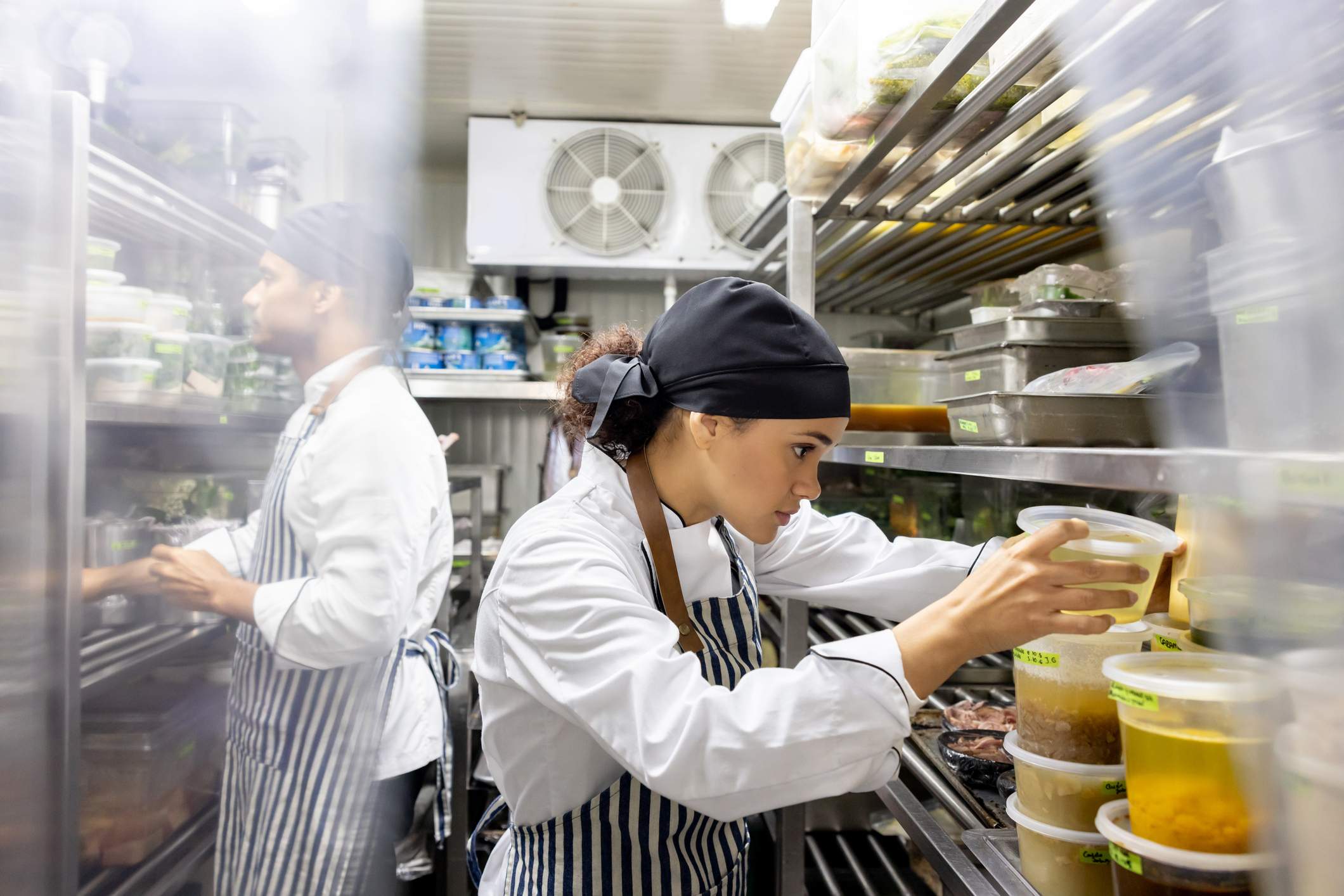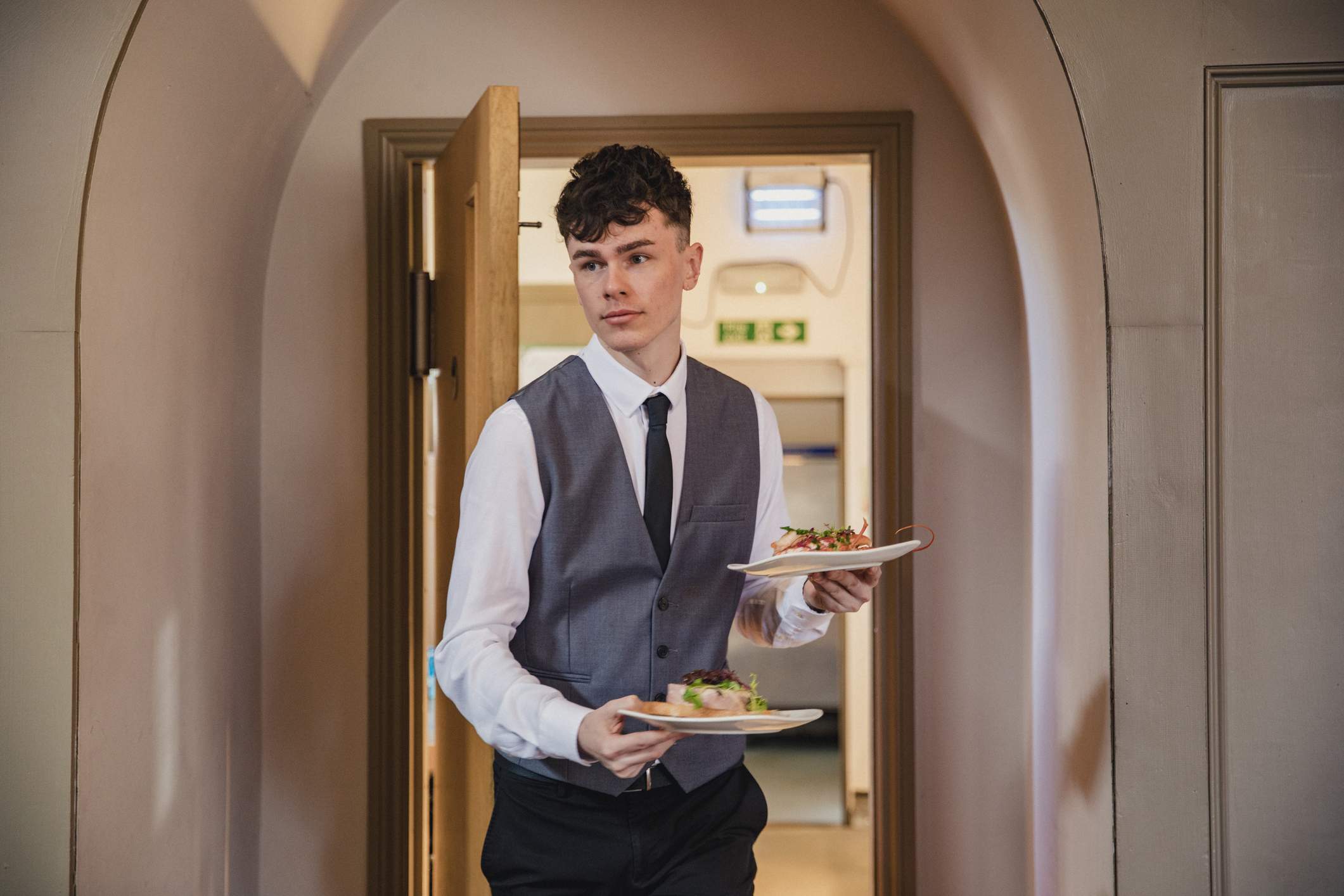In all 50 states, teens as young as 14 are allowed to work in restaurants. Restaurants hiring at 15 and even restaurants hiring at 14 has become a more common practice in recent years thanks in part to the ongoing labor crisis. This age group can’t join your full-time workforce, but they can be dedicated part-time employees who can help take the pressure off during a restaurant’s busiest shifts.
Historically, younger teens have worked at fast food restaurants, but this age group can provide critical support to restaurants of any kind. But before you hire 14- and 15-year-old team members, you must know the local and federal rules and regulations that apply to this group. There are a few restrictions and some extra paperwork, but the benefits can definitely outweigh the disadvantages.
If done right, companies that hire these teens have the opportunity to fill in gaps in their workforce, train the next generation of restaurant workers, and introduce young people to rewarding hospitality careers.
Here’s what you need to know:

What is the minimum age to work at restaurants?
Attention, family-owned restaurants: Kids of any age can work in a restaurant owned by their parents. Don’t hesitate to bring the young ones into the family business. Even little kids can fold napkins and dust. But other than the special circumstances of a mom-and-pop restaurant, 14 is the minimum age you can hire, and restrictions will apply.
Are there restrictions for teens working in restaurants?
It can be great for young teens to dip a toe into the world of work and practice having responsibilities outside the home. At this age, they are still in school and no one wants a kid’s dishwashing duties to interfere with algebra homework.
That’s why there are rules that govern working hours and conditions for teens. These can vary by state, but in general, the following may be restricted for 14- and 15-year-old team members:
- The number of hours worked
- Times of the day worked
- School days worked
- Days of the week worked
- Jobs they can do at work
For obvious reasons, 14- and 15-year-olds aren’t allowed to work during school hours. On school days, they can usually work a maximum of 3 hours a day and 18 hours a week. They are also usually prohibited from working early in the morning or late at night. This varies a lot by state. In some places, the cut-off time is as early as 9 pm. Restaurants should consider putting young workers on the schedule for the dinner rush between 5:30 and 8:30 pm.
Restrictions differ not only by state but also by age group. The youngest teen workers, 14- and 15-year-olds, have the most restrictions. Older kids at 16 and 17 years old have fewer limitations.
At 18 most restrictions are lifted because 18-year-olds aren’t subject to federal child labor laws. In most states, people can start serving alcohol starting at this age, but in a few places, people cannot serve alcohol until ages 19, 20, and even 21.

What is the fair labor standards act?
The fair labor standards act covers things like minimum wage, overtime pay, and record keeping. It also includes what is commonly known as child labor laws meant to protect kids from harsh working conditions and other dangers. It restricts the hours teens are permitted to work and what type of job they can do. It protects them from working in hazardous workplaces and situations.
What is a work permit or a work certificate?
In most states, teens at 14 or 15 will need a work permit or work certificate to prove they meet the minimum age requirements. Often, a school guidance counselor will need to be involved with completing and submitting an application.
The onus of filing for these working papers is largely on the teen, though sometimes a letter from the prospective employer is also needed.
Are teens able to provide customer service?
When it comes to teens working in restaurants, one of the biggest concerns is how teens will handle the job of customer service. In a first job, no one has experience with customer service–you’ll have to lay the foundation before putting guests in their hands.
Teens, even young teens, can make excellent hosts, but their personality and your willingness to train them will determine their success. It can be a good idea to start teens as bussers or dishwashers so you can get to know them before they have a job that centers on customer service and guest interactions.

What type of restaurant job is right for a 14- or 15-year-old team member?
There are local and federal rules that govern what type of jobs teens can do in restaurants. But broadly speaking, here are some tasks they are likely able to take on:
- Cashiering
- Table service
- Bussing tables
- Cleaning up
- Prep and cooking (within limits)
There are some nuances to know about both cooking and cleaning tasks. Here are some things that are prohibited:
- Any baking activities
- Operating automatic broilers, rotisseries, pressure cookers, fryolators, high-speed ovens, or rapid toasters
- Using or cleaning power-driven machines, including slicers, grinders, processors, or mixtures.
- Working over open flames
- Tending bar and serving alcohol
If your restaurant serves alcohol, it’s important to know there are many local age restrictions that vary state by state. In most places, 18-year-olds can serve alcohol but in other places, the age is 21.
Young people who are curious about working in restaurants are important to the future of the industry. If you ask your most seasoned people when they fell in love with hospitality, you’re likely to hear about the place they worked when they were in high school. Now is your chance to be that place that creates a lifelong love of working in restaurants for the next generation. They need you as much as you need them.





